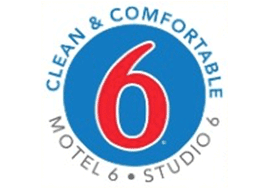You’re throwing in a load of laundry, expecting clean, fresh clothes, but instead, you pull out stiff, scratchy fabrics that feel like they’ve been washed in sand. If this sounds familiar, hard water might be the culprit. This common issue, especially prevalent in regions like the Midwest, can turn a simple chore into a frustrating experience, leaving your clothes less vibrant, your detergents less effective, and your appliances working overtime. Read on to learn what you can do.
The Problem of Hard Water
Hard water contains high levels of calcium and magnesium, which not only disrupt your daily laundry but can also lead to significant appliance issues over time. Many homeowners are advised to install water softeners as a solution, but why is this recommendation so common? The answer lies in the impact of scaling caused by these minerals.
Effects of Scaling
When hard water flows through your home’s plumbing, it leaves behind deposits known as scale. This scaling doesn’t just sit there; it actively clogs and corrodes water lines, valves, and machine components. In fact, the number one service call for many appliance technicians is related to water valves that are jammed open due to scaling. The scale corrodes seals within these valves, preventing them from closing properly, which leads to leaks and inefficient operation.
Impact on Cleaning Efficiency
The presence of hard water in your laundry system forces you to use more detergent and water conditioners. These are necessary to counteract the hardness of the water, which otherwise inhibits soap from performing effectively. This not only makes your laundry process less efficient but also more costly due to the extra cleaning agents required.
Why You Should Switch to Soft Water
Switching to soft water can dramatically change your laundry experience. If you’ve ever showered with soft water, you’ve likely noticed that a little shampoo goes a long way and produces a lot of foam. This same principle applies to your washing machine. Soft water enhances the effectiveness of detergents, allowing them to create more foam and penetrate fabrics more deeply, which results in cleaner, softer clothes with less detergent.
Overcoming Hard Water
- Test Your Water: Understanding the quality of your water is the first step. If you find high levels of hardness, a water softener is often the best solution.
- Consider a Water Softener: Installing a water softener can significantly reduce the issues caused by hard water. It removes calcium and magnesium from your water, preventing scale buildup and improving the efficiency of your laundry process.
- Explore Alternative Technologies: While water softeners are the most common solution, other technologies are available that can also help mitigate hard water effects, though they may not be as widely used or effective.
Understanding Water Quality
Before taking any steps, it’s crucial to understand what you’re dealing with. Have your water tested by a professional to determine its hardness level and the specific minerals present. This information will guide you in choosing the most effective treatment option for your home.
In Summary
Dealing with hard water laundry problems can be frustrating, but with the right approach, you can significantly improve your laundry results. Consider installing a water softener to reduce the effects of hard minerals and enhance your cleaning efficiency.
If you’re unsure about the quality of your water or need more tailored solutions, contact us for further assistance and expert advice on overcoming hard water challenges in your home.











